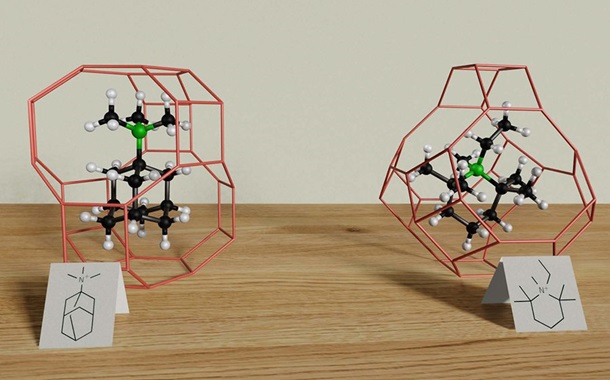Factors Shaping Thai Millennials' Low-Carbon Behavior: Insights from Extended Theory of Planned Behavior
Downloads
Doi:10.28991/HIJ-2023-04-03-02
Full Text:PDF
Downloads
Paiement, P., Webster, E., & Anderson, R. (2022). After COP26: Appraising the transnational climate regime. Transnational Legal Theory, 13(2–3), 157–164. doi:10.1080/20414005.2023.2170758.
Skea, J., & Nishioka, S. (2008). Policies and practices for a low-carbon society. Climate Policy, 8(Sup1), S5–S16. doi:10.3763/cpol.2008.0487.
Wang, T., Shen, B., Han Springer, C., & Hou, J. (2021). What prevents us from taking low-carbon actions? A comprehensive review of influencing factors affecting low-carbon behaviors. Energy Research & Social Science, 71, 101844. doi:10.1016/j.erss.2020.101844.
Ding, Z., Jiang, X., Liu, Z., Long, R., Xu, Z., & Cao, Q. (2018). Factors affecting low-carbon consumption behavior of urban residents: A comprehensive review. Resources, Conservation and Recycling, 132, 3–15. doi:10.1016/j.resconrec.2018.01.013.
Zhou, X., James, G., Liebman, A., Dong, Z. Y., & Ziser, C. (2010). Partial carbon permits allocation of potential emission trading scheme in Australian electricity market. IEEE Transactions on Power Systems, 25(1), 543–553. doi:10.1109/TPWRS.2009.2030377.
Halder, P., Hansen, E. N., Kangas, J., & Laukkanen, T. (2020). How national culture and ethics matter in consumers' green consumption values. Journal of Cleaner Production, 265, 121754. doi:10.1016/j.jclepro.2020.121754.
Valor, C., & Martínez-de-Ibarreta, C. (2021). Toward a personology of green consumers: An application of personal projects. Journal of Consumer Behaviour, 20(3), 725–735. doi:10.1002/cb.1901.
Yan, L., Keh, H. T., & Wang, X. (2021). Powering Sustainable Consumption: The Roles of Green Consumption Values and Power Distance Belief. Journal of Business Ethics, 169(3), 499–516. doi:10.1007/s10551-019-04295-5.
Khan, S. A. R., Godil, D. I., Jabbour, C. J. C., Shujaat, S., Razzaq, A., & Yu, Z. (2021). Green data analytics, blockchain technology for sustainable development, and sustainable supply chain practices: evidence from small and medium enterprises. Annals of Operations Research, 1–25. doi:10.1007/s10479-021-04275-x.
Xie, C., Wang, R., & Gong, X. (2022). The influence of environmental cognition on green consumption behavior. Frontiers in Psychology, 13, 988585. doi:10.3389/fpsyg.2022.988585.
Li, L., Jin, J., He, R., Kuang, F., Zhang, C., & Qiu, X. (2023). Effects of social capital on farmers' choices of climate change adaptation behavior in Dazu District, China. Climate and Development, 15(2), 110–121. doi:10.1080/17565529.2022.2061403.
Wei, J., Zhang, L., Yang, R., & Song, M. (2023). A new perspective to promote sustainable low-carbon consumption: The influence of informational incentive and social influence. Journal of Environmental Management, 327, 116848. doi:10.1016/j.jenvman.2022.116848.
Zhong, S., & Chen, J. (2019). How environmental beliefs affect consumer willingness to pay for the greenness premium of low-carbon agricultural products in China: Theoretical model and survey-based evidence. Sustainability (Switzerland), 11(3), 592. doi:10.3390/su11030592.
Luo, B., Sun, Y., Shen, J., & Xia, L. (2020). How does green advertising skepticism on social media affect consumer intention to purchase green products? Journal of Consumer Behaviour, 19(4), 371–381. doi:10.1002/cb.1818.
Shukla, S. (2019). A Study on Millennial Purchase Intention of Green Products in India: Applying Extended Theory of Planned Behavior Model. Journal of Asia-Pacific Business, 20(4), 322–350. doi:10.1080/10599231.2019.1684171.
Chan, L., & Bishop, B. (2013). A moral basis for recycling: Extending the theory of planned behaviour. Journal of Environmental Psychology, 36, 96–102. doi:10.1016/j.jenvp.2013.07.010.
Mateedulsatit, M. S. (2018). A study of Thai millennials attitudes and adoption factors towards zero waste products. Ph.D. Thesis, Thammasat University, Bangkok, Thailand.
Armstrong, A. K., & Krasny, M. E. (2020). Tracing paths from research to practice in climate change education. Sustainability (Switzerland), 12(11), 4779. doi:10.3390/su12114779.
Jansom, A., & Pongsakornrungsilp, S. (2021). How Instagram influencers affect the value perception of Thai millennial followers and purchasing intention of luxury fashion for sustainable marketing. Sustainability (Switzerland), 13(15), 8572. doi:10.3390/su13158572.
Lepananon, P. (2022). Thai Generation Y Tourists' Perception of Hotel's Environmental Roles, Green Hotels and Green Practices. APHEIT International Journal, 11(2), 116–124.
Stern, P. C. (2000). Toward a coherent theory of environmentally significant behavior. Journal of Social Issues, 56(3), 407–424. doi:10.1111/0022-4537.00175.
Abrahamse, W., Steg, L., Vlek, C., & Rothengatter, T. (2005). A review of intervention studies aimed at household energy conservation. Journal of Environmental Psychology, 25(3), 273–291. doi:10.1016/j.jenvp.2005.08.002.
Akenji, L., Bengtsson, M., Toivio, V., Lettenmeier, M., Fawcett, T., Parag, T., ... & Kenner, D. (2021). 1.5-degree lifestyles: Towards a fair consumption space for all. Hot or Cool Institute, Berlin, Germany.
Fishbein, M., & Ajzen, I. (2011). Predicting and Changing Behavior. Psychology Press, New York, United States. doi:10.4324/9780203838020.
Iyengar, E. V. (2007). Review: An Inconvenient Truth: The Planetary Emergency of Global Warming and What We Can Do about It, by Al Gore. The American Biology Teacher, 69(1), 58–58. doi:10.2307/4452094.
Gong, Y., Li, J., Xie, J., Zhang, L., & Lou, Q. (2022). Will "Green” Parents Have "Green” Children? The Relationship Between Parents' and Early Adolescents' Green Consumption Values. Journal of Business Ethics, 179(2), 369–385. doi:10.1007/s10551-021-04835-y.
Abrahamse, W., Steg, L., Vlek, C., & Rothengatter, T. (2007). The effect of tailored information, goal setting, and tailored feedback on household energy use, energy-related behaviors, and behavioral antecedents. Journal of Environmental Psychology, 27(4), 265–276. doi:10.1016/j.jenvp.2007.08.002.
Keramitsoglou, K. M., & Tsagarakis, K. P. (2013). Public participation in designing a recycling scheme towards maximum public acceptance. Resources, Conservation and Recycling, 70, 55–67. doi:10.1016/j.resconrec.2012.09.015.
Grí¸nhí¸j, A., & Thí¸gersen, J. (2011). Feedback on household electricity consumption: Learning and social influence processes. International Journal of Consumer Studies, 35(2), 138–145. doi:10.1111/j.1470-6431.2010.00967.x.
Chen, W., & Li, J. (2019). Who are the low-carbon activists? Analysis of the influence mechanism and group characteristics of low-carbon behavior in Tianjin, China. Science of the Total Environment, 683, 729–736. doi:10.1016/j.scitotenv.2019.05.307.
Girod, R., & Tofigh, F. (1966). Family Background and Income, School Career and Social Mobility of Young Males of Working-Class Origin ” A Geneva Survey. Acta Sociologica, 9(1–2), 94–109. doi:10.1177/000169936600900107.
Ignatow, G. (2007). Transnational identity politics and the environment. Lexington Books, Lanham, United States.
Geng, N., Liu, Z., Han, X., & Zhang, X. (2023). Influencing Factors and Group Differences of Urban Consumers' Willingness to Pay for Low-Carbon Agricultural Products in China. International Journal of Environmental Research and Public Health, 20(1), 358. doi:10.3390/ijerph20010358.
Lei, M., Cai, W., Liu, W., & Wang, C. (2022). The heterogeneity in energy consumption patterns and home appliance purchasing preferences across urban households in China. Energy, 253, 124079. doi:10.1016/j.energy.2022.124079.
Andre, P., Boneva, T., Chopra, F., & Falk, A. (2022). Misperceived Social Norms and Willingness to Act Against Climate Change. Econtribute Discussion Paper, 1-74.
Fang, X., Goette, L., Rockenbach, B., Sutter, M., Tiefenbeck, V., Schob, S., & Staake, T. (2022). Complementarities in Behavioral Interventions Evidence from a Field Experiment on Energy Conservation. SSRN Electronic Journal. doi:10.2139/ssrn.4147196.
Imai, T., Pace, D. D., Schwardmann, P., & van der Weele, J. J. (2022). Correcting Consumer Misperceptions About CO Emissions. SSRN Electronic Journal. doi:10.2139/ssrn.4307482.
Kaufmann, M., & Koszegi, B. (2023). Understanding Markets with Socially Responsible Consumers. Available online: https://www.briq-institute.org/files/botond/SRC_in_Markets.pdf (accessed on May 2023).
Wan, C., Shen, G. Q., & Yu, A. (2014). The role of perceived effectiveness of policy measures in predicting recycling behaviour in Hong Kong. Resources, Conservation and Recycling, 83, 141–151. doi:10.1016/j.resconrec.2013.12.009.
Zhang, S., Hu, D., Lin, T., Li, W., Zhao, R., Yang, H., Pei, Y., & Jiang, L. (2021). Determinants affecting residents' waste classification intention and behavior: A study based on TPB and A-B-C methodology. Journal of Environmental Management, 290. doi:10.1016/j.jenvman.2021.112591.
Allcott, H., & Rogers, T. (2014). The short-run and long-run effects of behavioral interventions: Experimental evidence from energy conservation. American Economic Review, 104(10), 3003–3037. doi:10.1257/aer.104.10.3003.
Wenker, K. (2022). A systematic literature review on persuasive technology at the workplace. Patterns, 3(8), 100545. doi:10.1016/j.patter.2022.100545.
Böckle, M., Novak, J., & Bick, M. (2020). Exploring gamified persuasive system design for energy saving. Journal of Enterprise Information Management, 33(6), 1337–1356. doi:10.1108/JEIM-02-2019-0032.
Jovanovic, D., & Matejevic, M. (2014). Relationship between Rewards and Intrinsic Motivation for Learning – Researches Review. Procedia - Social and Behavioral Sciences, 149, 456–460. doi:10.1016/j.sbspro.2014.08.287.
Schneider, F. H., Campos-Mercade, P., Meier, S., Pope, D., Wengström, E., & Meier, A. N. (2023). Financial incentives for vaccination do not have negative unintended consequences. Nature, 613(7944), 526–533. doi:10.1038/s41586-022-05512-4.
Ahshanul Mamun, A. M. (2023). Motivating green behaviour in Bangladeshi employees: Self-determination theory application. Heliyon, 9(7), 18155. doi:10.1016/j.heliyon.2023.e18155.
Zhao, X. (2023). A Review of Research on Low-Carbon Customization. E3S Web of Conferences, 393, 02032. doi:10.1051/e3sconf/202339302032.
Li, H., Wang, L., Ou, Y., & Zhang, L. (2023). How does goal framing effect influence household low-carbon behavior: The roles of environmental self-efficacy and global–local identity. Frontiers in Environmental Science, 10, 2651. doi:10.3389/fenvs.2022.1035118.
Panzone, L. A., Ulph, A., Hilton, D., Gortemaker, I., & Tajudeen, I. A. (2021). Sustainable by Design: Choice Architecture and the Carbon Footprint of Grocery Shopping. Journal of Public Policy & Marketing, 40(4), 463–486. doi:10.1177/07439156211008898.
Vainio, A., & Paloniemi, R. (2014). The complex role of attitudes toward science in pro-environmental consumption in the Nordic countries. Ecological Economics, 108, 18–27. doi:10.1016/j.ecolecon.2014.09.026.
Jensen, B. B. (2002). Knowledge, Action and Pro-environmental Behaviour. Environmental Education Research, 8(3), 325–334. doi:10.1080/13504620220145474.
Yzer, M. (2012). Perceived Behavioral Control in Reasoned Action Theory. The ANNALS of the American Academy of Political and Social Science, 640(1), 101–117. doi:10.1177/0002716211423500.
Jingchao, Z., Kotani, K., & Saijo, T. (2018). Public acceptance of environmentally friendly heating in Beijing: A case of a low temperature air source heat pump. Energy Policy, 117, 75–85. doi:10.1016/j.enpol.2018.02.041.
Yu, M., Wang, C., Liu, Y., Olsson, G., & Bai, H. (2018). Water and related electrical energy use in urban households”Influence of individual attributes in Beijing, China. Resources, Conservation and Recycling, 130, 190–199. doi:10.1016/j.resconrec.2017.11.004.
Pothitou, M., Varga, L., Kolios, A. J., & Gu, S. (2017). Linking energy behaviour, attitude and habits with environmental predisposition and knowledge. International Journal of Sustainable Energy, 36(4), 398–414. doi:10.1080/14786451.2015.1032290.
Khanna, N. Z., Guo, J., & Zheng, X. (2016). Effects of demand side management on Chinese household electricity consumption: Empirical findings from Chinese household survey. Energy Policy, 95, 113–125. doi:10.1016/j.enpol.2016.04.049.
Han, L., Xu, X., & Han, L. (2015). Applying quantile regression and Shapley decomposition to analyzing the determinants of household embedded carbon emissions: Evidence from urban China. Journal of Cleaner Production, 103, 219–230. doi:10.1016/j.jclepro.2014.08.078.
Lin, S. M. (2016). Reducing students' carbon footprints using personal carbon footprint management system based on environmental behavioural theory and persuasive technology. Environmental Education Research, 22(5), 658–682. doi:10.1080/13504622.2015.1018142.
Du, L., Guo, J., & Wei, C. (2017). Impact of information feedback on residential electricity demand in China. Resources, Conservation and Recycling, 125, 324–334. doi:10.1016/j.resconrec.2017.07.004.
Subanidja, S., Sorongan, F. A., & Legowo, M. B. (2022). Sustainable Bank Performance Antecedents in the Covid-19 Pandemic Era: A Conceptual Model. Emerging Science Journal, 6(4), 786-797. doi:10.28991/ESJ-2022-06-04-09.
Ajzen, I. (2011). The theory of planned behaviour: Reactions and reflections. Psychology & Health, 26(9), 1113–1127. doi:10.1080/08870446.2011.613995.
Ajzen, I., & Fishbein, M. (2004). Questions Raised by a Reasoned Action Approach: Comment on Ogden (2003). Health Psychology, 23(4), 431–434. doi:10.1037/0278-6133.23.4.431.
Han, T. I., & Stoel, L. (2017). Explaining Socially Responsible Consumer Behavior: A Meta-Analytic Review of Theory of Planned Behavior. Journal of International Consumer Marketing, 29(2), 91–103. doi:10.1080/08961530.2016.1251870.
Chen, A., & Peng, N. (2012). Green hotel knowledge and tourists' staying behavior. Annals of Tourism Research, 39(4), 2211–2216. doi:10.1016/j.annals.2012.07.003.
Dean, M., Raats, M. M., & Shepherd, R. (2012). The Role of Self-Identity, Past Behavior, and Their Interaction in Predicting Intention to Purchase Fresh and Processed Organic Food. Journal of Applied Social Psychology, 42(3), 669–688. doi:10.1111/j.1559-1816.2011.00796.x.
Chen, Y. S., & Chang, C. H. (2012). Enhance green purchase intentions: The roles of green perceived value, green perceived risk, and green trust. Management Decision, 50(3), 502–520. doi:10.1108/00251741211216250.
Pavlou, P. A. (2002). What Drives Electronic Commerce? A Theory of Planned Behavior Perspective. Academy of Management Proceedings, 2002(1), A1–A6. doi:10.5465/apbpp.2002.7517579.
Thaler, R. H., & Ganser, L. J. (2015). Misbehaving: the making of behavioral economics. Penguin Random House, London, United Kingdom. doi:10.5860/choice.192072.
Franzen, A., & Meyer, R. (2010). Environmental attitudes in cross-national perspective: A multilevel analysis of the ISSP 1993 and 2000. European Sociological Review, 26(2), 219–234. doi:10.1093/esr/jcp018.
Dunlap, R. E., Van Liere, K. D., Mertig, A. G., & Jones, R. E. (2000). New Trends in Measuring Environmental Attitudes: Measuring Endorsement of the New Ecological Paradigm: A Revised NEP Scale. Journal of Social Issues, 56(3), 425–442. doi:10.1111/0022-4537.00176.
Flynn, B. B., Schroeder, R. G., & Sakakibara, S. (1994). A framework for quality management research and an associated measurement instrument. Journal of Operations Management, 11(4), 339–366. doi:10.1016/S0272-6963(97)90004-8.
Cohen, J. (2016). A power primer. Methodological issues and strategies in clinical research. American Psychological Association, Washington, United States. doi:10.1037/14805-018.
Hair, J., Hair Jr, J. F., Sarstedt, M., Ringle, C. M., & Gudergan, S. P. (2023). Advanced issues in partial least squares structural equation modeling. SAGE publications, Thousand Oaks, United States.
Fornell, C., & Larcker, D. F. (1981). Evaluating Structural Equation Models with Unobservable Variables and Measurement Error. Journal of Marketing Research, 18(1), 39. doi:10.2307/3151312.
Henseler, J., Ringle, C. M., & Sarstedt, M. (2015). A new criterion for assessing discriminant validity in variance-based structural equation modeling. Journal of the Academy of Marketing Science, 43(1), 115–135. doi:10.1007/s11747-014-0403-8.
Alarcón, D., Sánchez, J. A., & De Olavide, U. (2015). Assessing convergent and discriminant validity in the ADHD-R IV rating scale: User-written commands for Average Variance Extracted (AVE), Composite Reliability (CR), and Heterotrait-Monotrait ratio of correlations (HTMT). Spanish STATA meeting, 22 October, 2015, Madrid, Spain.
Kock, N., & Lynn, G. S. (2012). Lateral collinearity and misleading results in variance-based SEM: An illustration and recommendations. Journal of the Association for Information Systems, 13(7), 546–580. doi:10.17705/1jais.00302.
Kock, N. (2015). Common method bias in PLS-SEM: A full collinearity assessment approach. International Journal of E-Collaboration, 11(4), 1–10. doi:10.4018/ijec.2015100101.
Zikmund, W. G., Babin, B. J., Carr, J. C., & Griffin, M. (2013). Business research methods. Cengage Learning, Boston, United States.
Ajzen, I., & Fishbein, M. (1977). Attitude-behavior relations: A theoretical analysis and review of empirical research. Psychological Bulletin, 84(5), 888–918. doi:10.1037//0033-2909.84.5.888.
Baker, E. W., Al-Gahtani, S. S., & Hubona, G. S. (2007). The effects of gender and age on new technology implementation in a developing country: Testing the theory of planned behavior (TPB). Information Technology & People, 20(4), 352–375. doi:10.1108/09593840710839798.
Cheng, C., & Ng, A. K. (2006). Psychosocial factors predicting SARS-preventive behaviors in four major SARS-affected regions. Journal of Applied Social Psychology, 36(1), 222–247. doi:10.1111/j.0021-9029.2006.00059.x.
Steg, L., & Vlek, C. (2009). Encouraging pro-environmental behaviour: An integrative review and research agenda. Journal of Environmental Psychology, 29(3), 309–317. doi:10.1016/j.jenvp.2008.10.004.
Zand Hessami, H., & Yousefi, P. (2013). Investigation of major factors influencing green purchasing behavior: Interactive approach. European Online Journal of Natural and Social Sciences, 2(4), 584–596.
Li, W., Long, R., Chen, H., & Geng, J. (2017). A review of factors influencing consumer intentions to adopt battery electric vehicles. Renewable and Sustainable Energy Reviews, 78, 318–328. doi:10.1016/j.rser.2017.04.076.
Oinas-Kukkonen, H. (2013). A foundation for the study of behavior change support systems. Personal and Ubiquitous Computing, 17(6), 1223–1235. doi:10.1007/s00779-012-0591-5.
Bardhan, R., Bahuman, C., Pathan, I., & Ramamritham, K. (2015). Designing a game based persuasive technology to promote pro-environmental behaviour (PEB). 2015 IEEE Region 10 Humanitarian Technology Conference (R10-HTC), Cebu, Philippines. doi:10.1109/r10-htc.2015.7391844.
Owusu, V., Adjei-Addo, E., & Sundberg, C. (2013). Do economic incentives affect attitudes to solid waste source separation? Evidence from Ghana. Resources, Conservation and Recycling, 78, 115–123. doi:10.1016/j.resconrec.2013.07.002.
Zhang, L., Chen, L., Wu, Z., Zhang, S., & Song, H. (2018). Investigating young consumers' purchasing intention of green housing in China. Sustainability (Switzerland), 10(4), 44. doi:10.3390/su10041044.
Urban, J., & Š časní½, M. (2012). Exploring domestic energy-saving: The role of environmental concern and background variables. Energy Policy, 47, 69–80. doi:10.1016/j.enpol.2012.04.018.
Liu, Y., Zhao, G., & Zhao, Y. (2016). An analysis of Chinese provincial carbon dioxide emission efficiencies based on energy consumption structure. Energy Policy, 96, 524–533. doi:10.1016/j.enpol.2016.06.028.
De Groot, H. L. F., Withagen, C. A., & Minliang, Z. (2004). Dynamics of China's regional development and pollution: An investigation into the Environmental Kuznets Curve. Environment and Development Economics, 9(4), 507–537. doi:10.1017/S1355770X0300113X.
Hatfield-Dodds, S., Schandl, H., Adams, P. D., Baynes, T. M., Brinsmead, T. S., Bryan, B. A., Chiew, F. H. S., Graham, P. W., Grundy, M., Harwood, T., McCallum, R., McCrea, R., McKellar, L. E., Newth, D., Nolan, M., Prosser, I., & Wonhas, A. (2015). Australia is ‘free to choose' economic growth and falling environmental pressures. Nature, 527(7576), 49–53. doi:10.1038/nature16065.
Liu, X., Wang, Q., Wei, H. H., Chi, H. L., Ma, Y., & Jian, I. Y. (2020). Psychological and demographic factors affecting household energy-saving intentions: A TPB-based study in northwest China. Sustainability (Switzerland), 12(3), 836. doi:10.3390/su12030836.
- This work (including HTML and PDF Files) is licensed under a Creative Commons Attribution 4.0 International License.






















